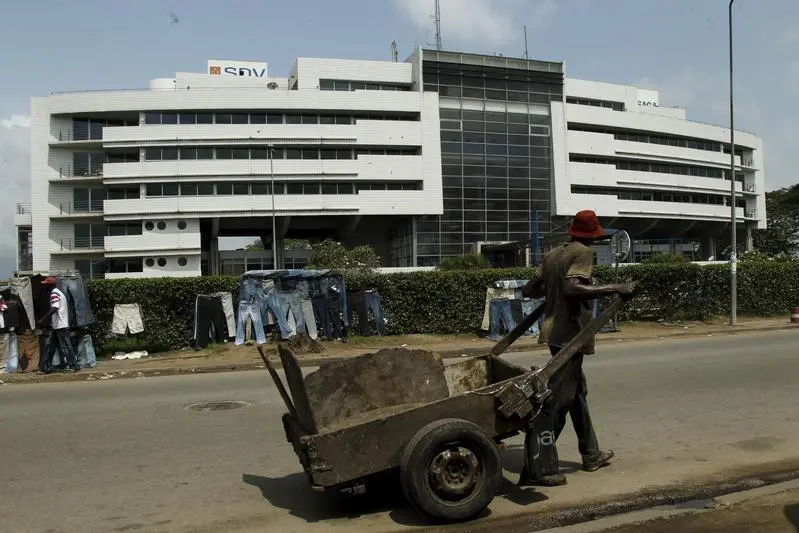PHOTO
To meet the government's 2020 deadline for reaching emerging economy status, Côte d'Ivoire is rolling out a raft of ambitious infrastructure builds to support development in key revenue-generating sectors.
The large capital projects are to be completed within the next five years under the country's wide-ranging 2016-20 National Development Plan (Plan National de Développement, PND), valued at approximately CFA29trn (€44.2bn).
The developments, many of which are being financed with private funds, will help reduce operating costs and delays for the country's priority industries.
Agro-industry and manufacturing are among the areas of the economy earmarked for growth, which means the focus on developing logistics and transport links could bring significant benefits for producers.
Funding developmentCôte d'Ivoire's development plan has garnered strong support from country donors and foreign investors alike.
Among the country's planned projects are 94 public-private partnerships (PPPs), providing myriad opportunities for foreign investors to participate in the country's advancement. As part of the 2016-20 PND, Côte d'Ivoire is aiming to increase the share of private investment from 65% to 70% of the national total.
Further support is also expected to come from regional donors, such as the African Development Bank and the West African Economic and Monetary Union - which, along with individual donor nations and other multilateral development bodies, have pledged a combined $6.7bn in financing in the decade to 2019, some of which will go towards PND-related projects.
Targeted sectors include energy, which is earmarked to receive $967.2m in funding; agriculture, rural development and the environment ($1.2bn); transportation and telecoms ($2.2bn); and water and sanitation ($517.3m).
Port prospectsProjects aimed at supporting agri-business development and trans-shipment will be a major focus, as the country looks to bolster industrial productivity, with new transport infrastructure to provide the necessary logistical support.
Ports upgrades have been a priority of the government's infrastructure drive given their economic importance; the Port of Abidjan accounts for around 70% of total government revenues, according to a recent report by the Netherlands Enterprise Agency (RVO).
In addition to serving as the primary gateway to Côte d'Ivoire, Abidjan is one of the largest ports in West Africa, receiving goods destined for landlocked Sahel countries, such as Burkina Faso, Mali and Niger.
Côte d'Ivoire broke ground on a second container terminal for the Port of Abidjan in November 2015, which will increase the facility's handling capacity from 800,000 containers per annum to more than 2m when it opens in 2018, making it West Africa's largest port by capacity. As part of the project, the Abidjan Ports Authority also plans to expand the 2700-metre Vridi Canal, which links Abidjan's Ebrié lagoon to the sea.
France's Bolloré Africa Logistics and the Netherland's APM Terminals, part of the Maersk Group, have secured a 21-year concession to operate and manage the new container terminal, while China Harbour Engineering Group has been tasked with carrying out the $962m project, which will be largely funded by the Export-Import Bank of China.
Côte d'Ivoire is also planning to build a new container terminal at the country's second-largest port, in San Pedro, which will increase its annual handling capacity from 200,000 twenty-foot equivalent units to as much as 15m, according to the RVO.
In addition, the government plans to construct a multi-purpose industrial terminal, which will include a 250-metre dock and a 4.7-ha storage zone. Customs and warehousing facilities surrounding the port will also be expanded.
While smaller than the port of Abidjan, San Pedro has played an increasingly important role in exports in recent years, with its share of total exports increasing from 20% in 2013 to 35% by early 2015.
Land connectivityTo leverage the regional reach of the country's ports, Côte d'Ivoire is also expanding and developing new land transport links to the interior.
While the country benefits from one of the most developed infrastructure networks in West Africa, underinvestment and poor maintenance have eroded this advantage over the past decade.
Plans to extend the highway linking Abidjan and Yamoussoukro to Bouaké in the north and on to Burkina Faso are taking shape, while a 1000-km San Pedro-Bamako railway corridor, which would link the port to the Malian capital, is being developed by Italian State Railways' engineering subsidiary Italferr.
© Oxford Business Group 2016





















